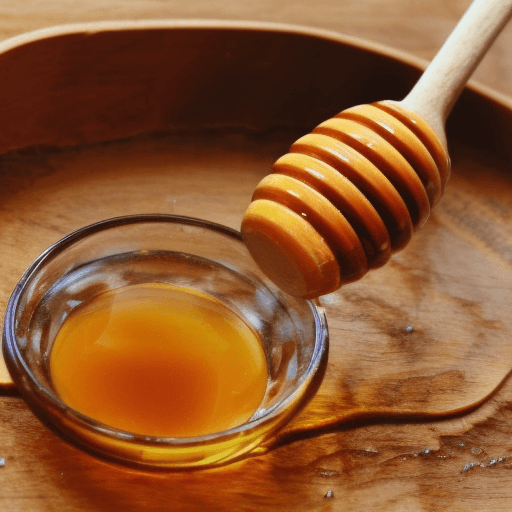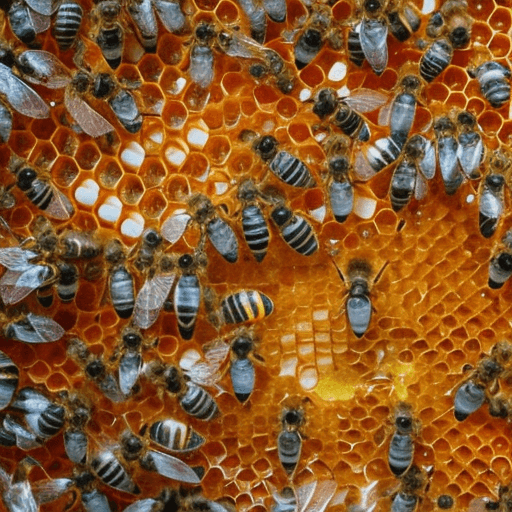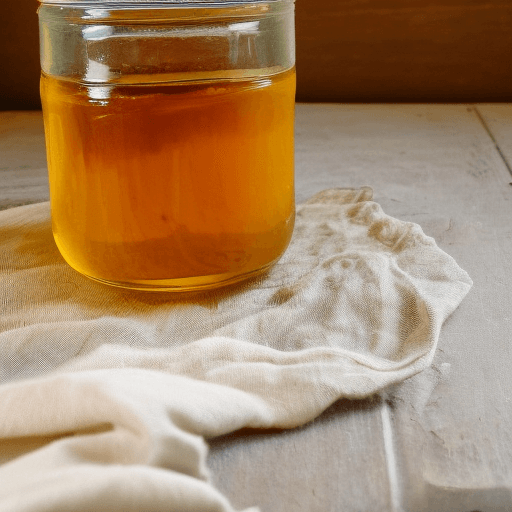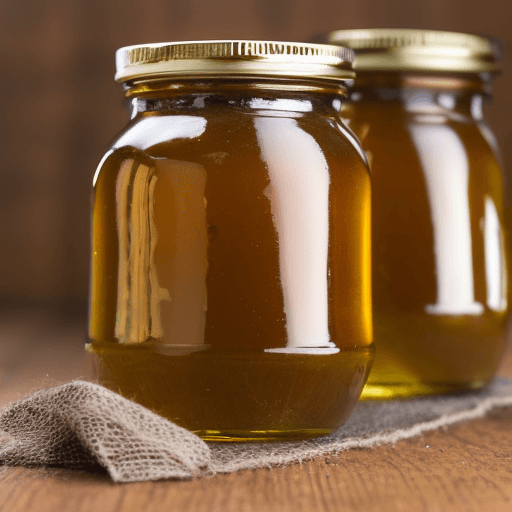Does honey go bad?
The short answer is yes, it can go bad over time.
It’s important to know how to store honey so that it lasts as long as possible.

What is the shelf life of honey and how to tell if it has gone bad?
Honey can spoil or go bad over time.
The shelf life of honey depends on the type of bee and nectar used to make it, but in general, unprocessed raw honey can last a long time without spoiling.
Raw honey typically stays fresh for up to two years if it is stored at room temperature away from heat and direct sunlight.
Most processed commercial honey has a best-before date and is often blended with other sugars or corn syrup which can cause them to go bad sooner than raw honey does.
Does honey go bad?
Does Honey Expire?
Scientifically speaking, yes honey does go bad, given the right conditions and depending on its composition.

While it does not spoil as quickly as other food products, it can undergo fermentation and changes in texture, flavor, and aroma over time that render it less desirable.
Even the smell of honey can change when exposed to air or contaminated with other substances.
However, being a product composed mostly of sugars, it has antimicrobial properties that help protect against spoilage and make it an ideal sweetener for baking. Knowing this can help you make great decisions about when you should use your jar of honey before its natural shelf life runs out!
How to tell if honey has gone bad?
How to tell if honey has gone bad?

It’s not the most appetizing situation, but it is possible for honey to spoil.
There are some obvious signs that can help you determine if your honey has gone bad.
- Firstly, look carefully at its color and texture, good quality honey should be a deep golden color and smooth in consistency.
- It may become thicker over time, but if your honey becomes stringy or watery then it’s probably gone bad.
- Secondly, the smell of honey a pungent aroma is indicative of spoilage.
- Lastly, taste a tiny bit of the honey; if it is sour or tastes fermented then discard it as it likely won’t be fit to consume anymore.
With these guidelines in mind, you can be sure your next teaspoonful of golden nectar will be safe and delicious!
What happens when honey expires?
When honey expires, it can become susceptible to bacterial growth and fermentation.

Eventually, these can lead to a variety of negative impacts on the flavor, smell, nutritional value, and overall quality of the honey.
- For example, bacteria can cause cloudy descent into the honey which will eventually change its texture from sweet and smooth to sour and granular.
- In addition, fermentation in expired honey can produce small amounts of alcohols like ethyl alcohol which makes the smell and taste unpleasant.
Although there are no immediate harmful effects associated with consuming expired honey; it is important to remember that it has lost some of its nutritional value due to the changes caused by bacteria and fermentation, making it best to avoid using or eating after it has expired.
How long can honey be kept?
How long can honey be kept?
Well, when not opened, unprocessed honey can last pretty much indefinitely – several thousand years, in fact.
Allowing unopened honey to sit on the shelf isn’t ideal in terms of maintaining flavor and consistency over time, though; most recommendations say that to ensure optimal storage and integrity it should be replaced every two years or so.
Once you open the jar, however, the answer changes; while still edible, your opened honey should be consumed within a year.
What is the best way to store honey?
Storing honey properly is essential for preserving its taste and texture.
The best way to store honey depends on a few factors, such as whether the honey is raw or processed, what type of container it’s stored in, and the temperature of the storage environment.
- Raw honey should be stored in dark glass jars with tight-fitting lids, while processed honey can be kept in plastic containers so long as they are completely airtight.
- In either case, make sure to keep the honey stored at room temperature to ensure the quality remains intact; if stored too cold it can become granulated and lose flavor, while too much heat will cause it to spoil faster.
What’s more, try to keep your containers sealed when not in use; that way you can retain your precious honey supply as long as possible!
Is it safe to eat expired honey?
Is it safe to eat expired honey?
The question has many people scratching their heads, however, the answer is “it depends”.
Honey is considered a superfood due to its antimicrobial properties, which means that as long as it’s sealed well and kept in a cool enough space, it can last virtually forever – even after expiry.
On the other hand, if your jar of honey is exposed to frequently warm temperatures, bacteria may contaminate the honey causing spoilage.
So while it may be possible to eat expired honey safely, it’s probably best to avoid doing so if the honey has gone bad or been open for some time.
How long is honey good for after opening?
Once opened, honey can last a long time if stored correctly.
Proper storage techniques will ensure that the honey retains its freshness and flavor for as long as possible up to two years according to research.
Refrigerating honey is not necessary unless it is exposed to temperatures higher than 50 °F.
Typically, this happens during the summer months when pantry or kitchen cabinets tend to get warm in some homes.
Honey should always be tightly sealed and stored in a cool, dry place away from direct sunlight and heat sources. If stored properly, you can enjoy your jar of honey for a long time after opening it!
Explain it to a child
According to research, if you store it correctly, honey can last up to two years without losing its freshness or flavor.
Despite its impressive shelf life, honey can eventually go bad. But don’t worry – it takes quite a long time for that to happen. If you want to extend the shelf life of your honey even further, you can store it in the fridge.
Article Sources
Jacks of Science sources the most authoritative, trustworthy, and highly recognized institutions for our article research. Learn more about our Editorial Teams process and diligence in verifying the accuracy of every article we publish.
